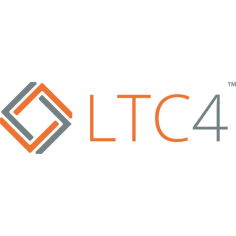Who needs to prove tech competence in 2025? Find out with LTC4
Do your clients assume that their legal advisers are competent users of legal technology? If asked the question, would you be confident to say that everyone at your firm is up to speed with the applications on their desktop?
Can you reassure clients that cyber security and data protection are understood and monitored consistently? To quote the UK’s Solicitors Regulation Authority Risk Outlook Report, December 2024.
“consumers are increasingly expecting their solicitors to:
- be more efficient, using technological advances to help them
- prove their value for money
- provide transparent information about the process, timeline and cost…..
…..however, despite this increased interest in new technology, there remains a lack of digital skills across all sectors….. This could present a risk for firms and consumers if legal practitioners do not fully understand the new technology that is implemented. You should therefore make sure appropriate training is given to all relevant staff when introducing new technology.”
The US American Bar Association’s MRPC** requires that : “To maintain the requisite knowledge and skill, …. including the benefits and risks associated with relevant technology, [lawyers] engage in continuing study and education.” Most other countries have stated that they agree with this Comment 8 of the MRPC.
Proving tech competence was not easy until LTC4™ came along. The “Legal Technology Core Competencies Certification Coalition” now known as LTC4 was formed because legal technology professionals across the globe had identified fundamental skills gaps and realised that there was no industry standard and certainly no recognisable accreditation. The LTC4 coalition has developed and consistently maintained a set of 10 workflow-based Learning Plans which provide structure for training programmes which are relevant to the way that legal professionals need to work now. Fee earning and support staff at every level engage with technology on a daily, hourly basis yet there are clear issues around user adoption of even the most basic applications.
The value of timely technology education is underestimated. Working with training professionals across the world it is clear that investment in IT training is still very low down the list of priorities. Hybrid working has become more widespread, so the skills needed are different, working from home has meant that no one is instantly at your side when you have a technology issue. Everyone has had to become more self-sufficient, and the risks of data breaches have increased exponentially.
With improved skills there are measurable improvements in efficiency and profitability. LTC4™ Certification means that training has not just been delivered, it’s impact on the learner has been assessed and competence has been achieved. LTC4™ Learning Plans cover important topics such as cyber security, collaboration, management and storage of data, time recording, document quality and video conferencing – and the all-important Certification is achieved through assessment or “learning review”.



